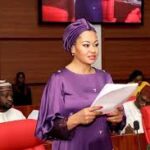The Minister of Power, Chief Adebayo Adelabu, has criticised electricity Distribution Companies (DisCos) in Nigeria, describing them as the weakest link in the country’s power supply value chain and a major source of frustration to Nigerians.
Speaking at a two-day retreat organised by the Senate Committee on Power in Ikot-Ekpene, Akwa Ibom State, Adelabu expressed concern over the DisCos’ poor performance and low remittances, especially from those operating in the northern region. He revealed that in 2024, northern DisCos remitted only 30 per cent of their N408.86 billion invoice, with Abuja DisCo alone accounting for 85 per cent of that figure.
“The DisCos have failed to meet performance expectations. No matter how much progress we make in generation, it is meaningless if distribution companies continue to underperform,” Adelabu stated.
The minister warned that the N200 billion monthly electricity subsidy was unsustainable, stressing that current tariff structures were straining public finances. Despite a 70 per cent boost in market liquidity due to recent tariff adjustments—raising sector revenue from N1 trillion in 2023 to N1.7 trillion in 2024—the distribution arm remains the most problematic.
Adelabu also decried underinvestment in distribution infrastructure and the growing reliance on subsidies, which he said have left millions of Nigerians without stable electricity. He noted disparities in performance between northern and southern DisCos, attributing the gap to crumbling infrastructure in areas outside major economic hubs.
He criticised the lack of long-term commitment by DisCos to their technical partnerships, noting that several companies that claimed foreign affiliations during the 2013 privatisation exercise disengaged within months of taking over.
“A number of them secured loans from banks to acquire assets, but rather than investing in infrastructure, they used the revenues to service those debts,” Adelabu lamented.
He also cited the widening metering gap as a major contributor to revenue loss and public distrust, announcing that the government had launched a N700 billion Presidential Metering Initiative (PMI) and a World Bank-backed programme to deliver 4.3 million meters by 2025. As of April 2024, 75,000 meters had been deployed, with 200,000 more expected in May.
“To ensure fair billing and financial sustainability, we must close the metering gap. But operational inefficiencies and underinvestment remain barriers,” he said.
The minister revealed that the sector currently faces a N4 trillion subsidy backlog to generation companies, including N1.94 trillion owed for 2024 alone. He called for the restructuring of underperforming DisCos and the enforcement of stricter performance standards.
Adelabu also advocated tougher legal measures to protect power infrastructure from vandalism, insisting that vandalism should be treated as a criminal, not civil, offence. He highlighted the need to tackle power theft, illegal connections, and non-payment of bills by consumers.
Despite these challenges, the minister noted improvements in grid stability, with no collapses recorded in 2025. He credited this to strategic investments, including the installation of 61 new transformers in 2024 and 13 more in the first four months of 2025.
“These transformers cost hundreds of millions of dollars. Yet, our people still vandalise them. This must stop,” he warned.
He urged the National Assembly to provide greater financial support to the Transmission Company of Nigeria (TCN), which he said operates solely on inadequate Internally Generated Revenue (IGR).
“TCN lacks sufficient funding to maintain existing infrastructure or expand the grid. It should be included in national appropriations,” he added.
Looking ahead, Adelabu announced plans to attract private investment into grid infrastructure and regionalise the transmission network to reduce failure risks. He also disclosed efforts to boost power supply in northern Nigeria, including the revival of the 215MW Kaduna Thermal Plant—87 per cent complete but abandoned for five years—and the development of the 1,000MW Makurdi Hydropower Project.
“We need bold reforms, serious investments, and legislative support to secure Nigeria’s energy future,” Adelabu concluded.
Edited by Nzubechukwu Eze









